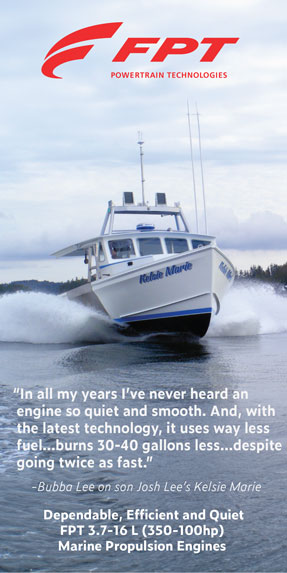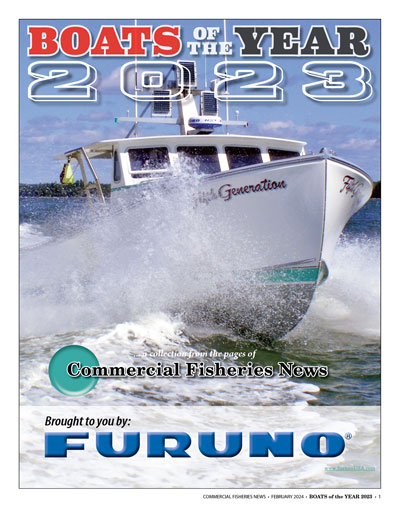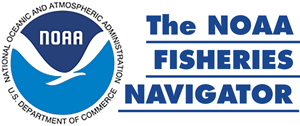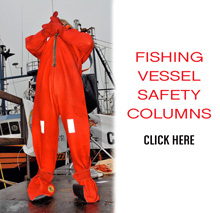Although it is still plenty cold along the East Coast, fishermen and the organizations that serve them are starting off 2021 with good news on the funding front and an impressive choice of safety trainings to attend.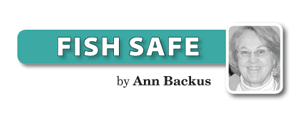
On Jan. 1, Congress overrode President Donald Trump’s veto of the National Defense Authorization Act for FY21 which contained the national budget for fiscal 2021.
Among the budget bills in the authorization act was the FISH SAFE Act, which is an acronym for Funding Introduction for Safety, Health and Security Avoids Fishing Emergencies Act. Now who came up with that gem?
The introduction of the FISH SAFE Act is the work in the Senate of Sen. Ed Markey (D-MA) and in the House of Rep. Jared Golden (D-ME) and Rep. Don Young (R-AK).
Eric Kanter in Golden’s office brought this act to my attention the other day when I was discussing fishing and a different budget issue with Rep. Golden’s staff.
Essentially, the FISH SAFE Act provides for the federal share of the cost of training and research activities under CDC (Centers for Disease Control and Prevention) grants for the fishing industry to be restored to 75%.
The federal share had been reduced to 50% in 2018, meaning that organizations who were awarded these grants had to match 50%-50%.
Thanks to the work of Golden and Markey, organizations will in the future only have to match the federal 75% with 25% local money to run their CDC grant programs — many of which provide safety training. We are not clear at this point whether this 75% federal share is retroactive.
Needless to say, our New England fishing-related organizations are very pleased with the return to 75% federal share. Thank you, Rep. Golden and Sen. Markey.
Spring training options include basic safety training, drill conductor training (with certification), first aid/CPR, and stability training.
All the organizations offering safety training are following COVID-19 protocols; classes are smaller and in some cases a portion of the instruction is online.
Spring safety training options:
• Maine Center for Coastal Fisheries. Stonington ME. Contact Tom Duym at (207) 610-0213 (cell) or (207) 367-2708 (office). Training available: Safety training, on request for 6-12 fishermen, minimum of 6. Method: Online videos plus 6 hours in-person practical training with John McMillan.
• McMillan Offshore Training. In Bucksport, ME at Maine Maritime Academy Center for Professional Mariners. Contact John McMillan at www.mcmillanoffshore.com. Training available: F/V drill conductor training, Saturdays only, Mar. 6, Apr. 10, and May 8.
• Fishing Partnership Support Services (FPSS). Contact https://fishingpartnership.org/calendar. Pre-registration is required. Training available: 1) safety and survival training (attend Day 1); drill conductor (attend both days). 2) Stability training. 3) CPR/first aid certification. Check website for dates. See accompanying chart for locations.
| Safety and Drill Conductor Training | Stability Training | |||||
| Date | City | State | Date | City | State | |
| Mar 4-5 | Cape May | NJ | Feb 22 | New Bedford | MA | |
| Mar 25-28 | New Bedford | MA | Mar 2 | Chatham | MA | |
| Apr 1-2 | Marshfield | MA | Apr 5 | Plymouth | MA | |
| Apr 8-9 | New Bedford | MA | Apr 19 | Gloucester | MA | |
| Apr 15-16 | Harwich | MA | ||||
| Apr 22-23 | South Portland | ME | ||||
| Apr 29-30 | Point Judith | RI | ||||
| May 6-7 | Gloucester | MA | ||||
| May 13-14 | Point Judith | RI | ||||
| May 20-21 | Gloucester | MA | ||||
What FPSS training entails
Safety and survival training. Prepare for a full day of hands-on training in fighting fires, plugging leaks, and swimming to a liferaft in a survival suit. This course is designed for all fishermen, including crewmen, to learn or hone fundamental survival skills like making a mayday call, lighting flares, or rescuing a person that falls overboard.
Drill conductor certification. After completing the one-day safety and survival training course, fishermen spend a second day learning how to lead monthly on-vessel safety drills that are critical for building muscle memory and ensuring the crew retains their skills. Meets US Coast Guard requirements under 46 CFR 28.270(c).
Fishing vessel stability. This five-hour workshop provides practical information and hands-on training on vessel stability and emergency responses to flooding problems that cause many casualties. It incorporates practical examples and case studies of actual fishing vessel accidents caused by complacency and other unsafe practices.
Back to the good news.
The courses listed above are free to fishermen at this time thanks to the federal dollars and the local match.
Drop an e-mail to Eric Kanter in Rep. Golden’s office, eric.kanter@mail.house.gov; or to Adam Axler in Sen. Markey’s office, adam_axler@markey.senate.gov, if you are so inclined to thank them for supporting safety and survival training for fishermen.
Ann Backus, MS, is the director of outreach for the Harvard School of Public Health’s Department of Environmental Health in Boston, MA. She may be reached by phone at (617) 432-3327 or by e-mail at <abackus@hsph.harvard.edu>.
FISH SAFE
• Make the good news last the whole year. Take a safety and survival training class to help ensure your safety and survival.
• Remember to wear your PFD.


